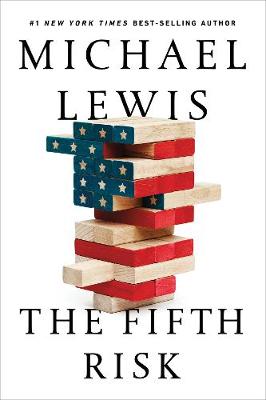
"The election happened," remembers Elizabeth Sherwood-Randall, then deputy secretary of the Department of Energy. "And then there was radio silence." Across all departments, similar stories were playing out: Trump appointees were few and far between; those that did show up were shockingly uninformed about the functions of their new workplace. Some even threw away the briefing books that had been prepared for them.
Michael Lewis's brilliant narrative takes us into the engine rooms of a government under attack by its own leaders. In Agriculture the funding of vital programs like food stamps and school lunches is being slashed. The Commerce Department may not have enough staff to conduct the 2020 Census properly. Over at Energy, where international nuclear risk is managed, it's not clear there will be enough inspectors to track and locate black market uranium before terrorists do.
Willful ignorance plays a role in these looming disasters. If your ambition is to maximize short-term gains without regard to the long-term cost, you are better off not knowing those costs. If you want to preserve your personal immunity to the hard problems, it's better never to really understand those problems. There is upside to ignorance, and downside to knowledge. Knowledge makes life messier. It makes it a bit more difficult for a person who wishes to shrink the world to a worldview.
If there are dangerous fools in this book, there are also heroes, unsung, of course. They are the linchpins of the system-those public servants whose knowledge, dedication, and proactivity keep the machinery running. Michael Lewis finds them, and he asks them what keeps them up at night.
- ISBN10 1324002646
- ISBN13 9781324002642
- Publish Date 2 October 2018
- Publish Status Active
- Publish Country US
- Imprint WW Norton & Co
- Format Hardcover
- Pages 256
- Language English
Reviews


mercurial
I had forgotten what a breeze it is to read Michael Lewis' writing. Lewis has a way of providing information that may otherwise be heavy and mundane, in an engaging narration like a friend who is enthusiastically sharing with you on what they just learned today.
I very much enjoyed the behind-the-scenes look at what happened when there is a transfer of power. Naively, I shared the same thought as (omg, no.) Jared Kushner thinking it would be
like a corporate acquisitions or something...everyone [in the federal government] just stayed.
Where I found an odd disconnection is in the last of the three chapters. The chapter provides insight into the four, five characters' involvement in scientific data aggregation in the government. But it doesn't have anything to do with government transition? That left me slightly disappointed as the book feels like an incomplete one on government transition plus a standalone long read on data science - although not a dull subject, I did not sign up for when I started the book.
I would still recommend anyone who wants to know more about how a government works to read, at least the first half, of The Fifth Risk. For the third chapter, maybe look up what Lewis has learned about AccuWeather's commercialization of taxpayer-funded government data instead, unless you are particularly interested in scientific data collection.
